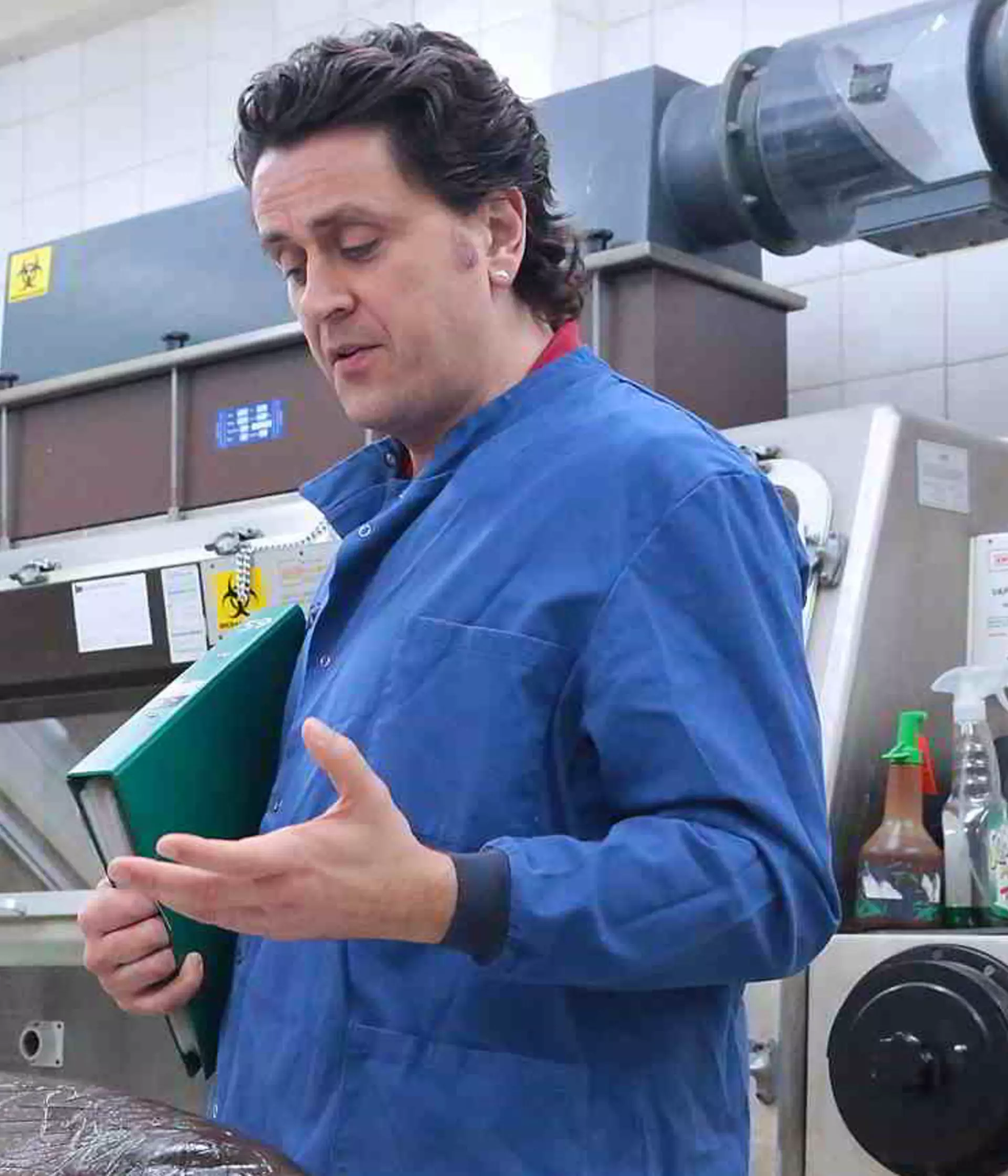WARNING: Please be aware that the event features film footage of a dolphin dissection taking place.
Every year around 600 porpoises, dolphins and whales (collectively known as cetaceans) strand around the UK coast. Why do these stranding events occur and what role does bycatch (accidental entanglement in fishing gear) play?
Following the success of previous events at the Zoological Society of London, an online-only event allowed viewers to see behind-the-scenes at ZSL and observe a dolphin post-mortem taking place in real-time, revealing the important work of the Cetacean Strandings Investigation Programme (CSIP).
The event was streamed live on Monday 12 March 2018. A recording of the event is available below, giving you the opportunity to hear from our experts as they demonstrate how vital information is gathered and analysed, how the cause of death is determined, and what this unique research can tell us about the impact of bycatch on cetaceans in UK waters.
Watch the event
Following the procedure and further analysis, the team concluded:
"This was a 185cm long juvenile female common dolphin that was found dead stranded at Torre Abbey Sands in Torquay on 23rd February 2018 (SW2018/87). Examination found that the dolphin was in good nutritional condition at death. The dorsal muscles were well developed and dorsal subcutaneous fat deposits were also noted. Multiple parallel linear cuts were present on the leading edges of the tail flukes, adjacent to the insertion into the tailstock and at the base of the leading edge of the dorsal fin (~2mm width). Multiple circumscribing linear impressions were also present around the head, just cranial to the pectoral fins. Multiple linear impressions were present on the left to ventral abdominal region and on the leading edge and cranial aspect of the right pectoral fin. Evidence of recent feeding was noted, with some semi-digested fish and digesta in the gastrointestinal tract. An area of haemorrhage was also noted in the dorsal thoracic vasculature (rete mirabile). No significant evidence of underlying disease was found.
The multiple netmarks, good nutritional condition, internal trauma and evidence of recent feeding are all considered to be consistent with bycatch (incidental entrapment in fishing gear)."
- This interactive online event was livestreamed to our YouTube channel
- There was no charge for this event, and no need to register in advance to watch the livestream
- Each event will comprise of short presentations from experts in the topic, followed by interactive Q&A and panel sessions. Viewers will be encouraged to join the event live and ask questions using an online platform.
- The UK Cetaceans Strandings Investigation Programme is co-funded by Defra and the Devolved Governments in Scotland and Wales. For more information about the programme please visit www.ukstrandings.org
- This event was run as part of British Science Week, the UK's biggest celebration of science
- Subscribe to the ZSL Science and Conservation YouTube channel
- Listen to the ZSL Wild Science podcast
- Contact Eleanor Darbey at eleanor.darbey@zsl.org for any Science and Conservation Event related enquiries.
- For press enquiries, please contact the ZSL Press Office: press.office@zsl.org.
- For more information about how to join the ZSL Fellowship programme and engage with a network of thousands who are shaping the future of conservation, please click here.
- Sign up here to receive email updates about forthcoming ZSL and Conservation Events.
- Read the latest blog posts from our scientists and conservationists here.
- Follow us on Twitter @ZSLScience to hear about new publications from our researchers, upcoming events and podcast episode releases.
- Now you can also Follow us on Facebook @ZSLScienceAndConservation to receive notifications about new events!
Sign up for free email updates and alerts about forthcoming ZSL and conservation events to make sure you're always in the know about the future of conservation in the UK and around the globe.
